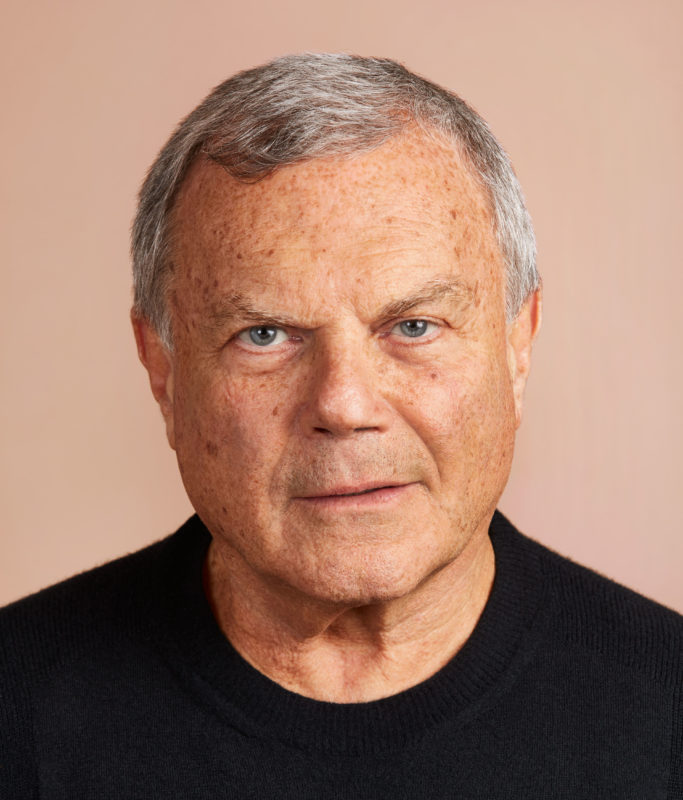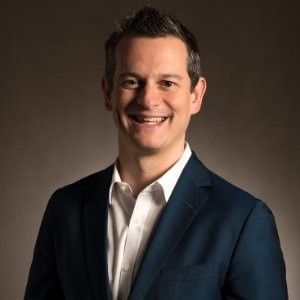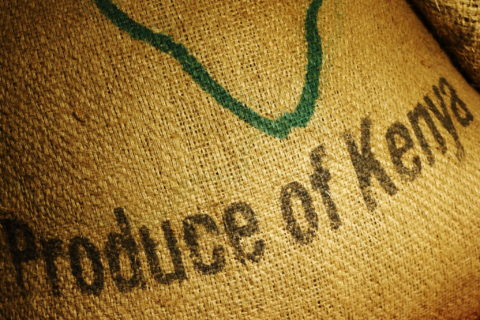After more than three decades at the helm of WPP, last year Sir Martin Sorrell suddenly left the company that he founded. Not one to sit still, he now heads up S4 Capital, the self-described ‘new era digital advertising and marketing services company’. We interviewed him in his London office about his plans and his views on the future of the insights industry.
Tell us about S4 Capital and the key areas you will be focusing on. You said you want to double revenues and profits in the next three years.
That’s our plan, and we’re on schedule. We’ve defined three growth areas in the advertising marketing services industry: first-party data, digital advertising content, and last but not least programmatic. They work in a continuous loop. So we have MediaMonks in the digital advertising content area, MightyHive in programmatic, we’ve added Caramel Pictures in food and drink video content and BizTech, which is an Adobe platform developer based in Australia, and then programmatic consultancy ProgMedia to MightyHive in Latin America.
(ed. note: first-party data is generally defined as the information an organisation itself has collected about its audience).

S4Capital
S4Capital is the ‘new age/new era digital advertising and marketing services company’ established by Sir Martin Sorrell in May 2018, after his departure from WPP. S4Capital integrated with Dutch creative digital content production company MediaMonks, and with programmatic solutions provider MightyHive. The company has a market capitalisation of approximately £600 million ($760 million) and some 1,400 people in 20 countries, across the Americas, Europe, the Middle-East and Africa and Asia-Pacific.
Where lies your focus globally?
I’d say the US, Latin America and Asia. Western Europe has its challenges, but we have big operations in the UK, Amsterdam and Stockholm. We have 1400 people now in 20 countries, including Russia, Kazakhstan and Ukraine. But essentially, the countries in Europe where we need to develop are Spain and Germany. We’ll be in around 21 to 24 countries.
In 2018, you acquired MediaMonks as well as MightyHive. What are the gaps in your portfolio?
We haven’t acquired any first-party data assets . For the campaigns of clients such as Netflix, Procter or Braun we are using their data to develop the content and then pump it out programmatic. The opportunities in the first-party data area are few and far between and they’re expensive, so we’re looking at them carefully.
Did WPP perhaps grow too big? Are you planning for a nimbler approach with S4?
All the traditional holding companies aim to become more agile and nimbler. I was wrestling with that too at WPP. Our model at S4 is very different; it starts at ground zero, it’s a clean sheet of paper. With digital transformation, we are now in a very different position. But whilst a clean sheet of paper is the good news it’s also the bad news, because you don’t have any scale. But we’re already up to a market capitalisation of $750 million. That’s what I call three quarters of a unicorn.
Are you cautious that it doesn’t expand too much?
When I started Saatchi in ‘76, ‘77 it was about globalisation. WPP was about the continuation of globalisation and the beginnings of technology. Both were of value-based around consolidation. S4 Capital is about growth. The demands of the market are very different to what they were before, they’re very much more about agility. But according to McKinsey, focusing on growth is critically important for companies to maintain longevity. Obviously, the bigger you are the more difficult it is to pivot as rapidly as you possibly can.
You’ve recently hired former WPP man Scott Spirit. He will also stay on at Eureka AI as a board member. Does that say anything about your ambitions in AI? What are your thoughts on this technology?
We’re agnostic about technology. The companies we look at from an acquisition and merger point of view have very strong growth and good margins, but are not ad-tech or martech dependent. It’s important to understand the technologies and use them as rapidly as possible because we’re purely digital. There’s the Holy Trinity, as we call it: first-party data, content and programmatic. Faster, better, cheaper is our mantra. Faster means more agility, better means better use of technology – including AI, VR, AR and Voice – and cheaper means more efficient.
Faster, better, cheaper is our mantra.
Recently, The New York Times stopped doing programmatic because of GDPR, and their advertising actually performed better.
I recently asked an audience of about a hundred people how many had not accepted the cookies when going onto a website. The answer was: none. We have to educate the consumers. Not in a patronising way, but so they understand what they’re letting themselves in for. Or maybe offer them rewards for doing it, if that is the best way to generate the data. Once consumers understand, you have removed a lot of the issues around it. And targeted advertising is certainly much better. Look at the Netflix model: we have the data and adapt the content to what is happening programmatically.
Digital and mobile are still expanding. Is there any room still within your framework for print or old media?
We are purely digital so the answer is no. But there is room for others, absolutely. Free-to-air TV, for example, is still 35-40% of the market. Print is still about 9%. So you could argue that half is still in traditional. But digital is where the growth is.
You said that one mistake WPP made was to not lock together first-party data and media buying.
I said I had difficulty in doing that. Now Kantar, which is probably their main source of first-party data, is being sold. It’s ironic that at the same time they’re doing that, you see Dentsu acquiring Merkle (2016, ed.), IPG buying Acxiom (2018, ed.) and Publicis Groupe with Epsilon (last July, ed.); they’re all going the other way.
So the Kantar sale is not something you’d agree with?
WPP say they’re going to retain a stake, so they see some value. But obviously Kantar has not had top-line growth. Maybe under other ownership there will be. There are four rumoured bidders for Kantar: Bain Capital, Platinum Equity, Apollo Global Management and Vista Equity. Bain now appear to be in the box seat. (Since our interview WPP has indeed sold 60% of Kantar to Bain Capital, editor.)
Not S4?
Well we’re not interested in the whole thing. Three pieces are very good: Kantar World Panel, the online panel Lightspeed, and Kantar Media.
But they’re selling it in one piece and even got rid of strong brands like Lightspeed. What is your take on that?
All the holding companies are moving to being one company. Publicis are probably doing that the fastest, causing the most short-term damage. Then WPP, also with short-term damage. When you put the agencies together, such as Wunderman and JWT, there’s a question mark over whether it works out or not. Certainly, in the short term it causes disruption. And that may be an explanation as to why Omnicom and IPG are doing much better than WPP and Publicis. It also has to do with being European-centred, when the American economy is growing so strongly.
What if you were to build a new Kantar today, what would it consist of?
It would focus very much on first-party data. In the custom business, if you look at Ipsos, at Nielsen, at GfK, which was bought by KKR… they’re all in trouble. Acxiom and Epslon were in difficulties until IPG and Publicis bought them out.
AI and other technology have changed the insight industry dramatically and will continue to do so. Is it especially difficult for the bigger companies to adapt?
There are two types of companies: legacy and digital. It’s very difficult to change analogue businesses. Often these are the cash cows, where you make the revenue and the profit. For them it’s very difficult to pivot quickly, as it was for me when I was running WPP. If the legacy business doesn’t respond as well as you want it to, it makes people nervous. Arianna Huffington once said about failure that it’s not the opposite of success, but the platform to success.
One of the holy grails for the insights industry has been across media measurement. Are we’re getting any closer to a good solution?
The old quote of wasting half still applies in advertising. Well, maybe it’s not half anymore, maybe it’s a quarter. But programmatic offers better answers.
How should companies plan for Brexit and the future?
Most UK companies rely heavily on the big four in Europe: Germany, France, Italy, Spain. They’re going to have to pivot more to the US, Latin America and Asia. Maybe even Eastern Europe, Africa, and the Middle East. But British businesses are not as good as Germans at developing trade outside Europe. 40% of our trade is in Europe so it has to shift.
Finally, how should research and insights adapt to the changes?
The big battleground is over data. Platforms such as Google, Facebook, Amazon, Alibaba and Tencent control huge amounts of data. Clients become increasingly concerned about their direct-to-consumer relationship. So first-party data has become critical in profiling consumers and establishing great relationships with them.
I would love for all of our clients to have perfect data which is organised effectively.
In 2016, the walled gardens said that the walls are getting even higher. GDPR, brand-safety and interference make control of the data more important. It could be a genuine concern or just an excuse for not sharing the data. But the clients, who had cut their resources internally, were suddenly faced with a new situation: the access they thought they’d have to the consumer via the internet, suddenly wasn’t there. So they wanted to take back control. They do that by using their first-party data, which is often disorganised. I would love for all of our clients to have perfect data which is organised effectively. But they’ve grown organically, and had different CIO’s and CTO’s and CMO’s doing different things, or they’ve grown by acquisitions. You need to use these insights in such a way that they inform the content, which in turn informs the programmatic or traditional media planning, so that it becomes a loop. As for the insight industry in general: the difficulties are not in the panel business or in the syndicated business, they’re in the old custom and projects business. Setting up in Vietnam to do a survey on the automobile industry… Nowadays you can get that data much more easily through the internet. It’s crucial to understand the importance of first-party data, to leverage that by organising it internally and effectively, to combine it with external sources, and then meshing them together.

Scott Spirit, Chief Growth Officer S4 Capital
“S4 is essentially a startup”
In June, Scott Spirit joined S4 as Chief Growth Officer. Operating from the company’s Singapore office he will focus on clients, mergers and acquisitions, and investor relations. He previously worked for WPP, most recently as Chief Strategy and Digital Officer.
At S4 Spirit will be responsible for corporate development. As such he will now be looking to strengthen the company’s first-party data services. “Looking at our core focusses, first-party data is the one where we haven’t made a major acquisition. There are parts of MightyHive and MediaMonks that handle data, so it is a capability we have, but we’re looking at doing a specific acquisition.”
Spirit worked previously at both WPP and Eureka AI, an artificial intelligencecompany that helps telco operators understand and use their data better. He believes machine learning and technology in general are changing the insights industry dramatically. “It has really shifted to getting insights from existing sorts of pools of big data, rather than going out and asking consumers their opinions. Because the data is so enormous, you increasingly need AI or some level of technology.”
For S4 this means that the company will be looking at expanding through intelligent ways of interpreting data, rather than acquiring a traditional market research firm. “For S4, data is part of the circular service offering we have: the data informs the creative and media decisions, those are then measured to see if they worked, and then data informs that, and so on. It’s a continuous circle. So instead of a traditional market research company, we’ll be looking for companies that have a more modern approach.”
One of those approaches is programmatic, a field in which S4 already laid a strong foundation with the acquisition of MightyHive. “A lot of what they do is built around data. And programmatic media planning and buying is based on data. So that ticks that first-party data box. It’s a business which has been growing and expanding rapidly. We’ve opened a lot of new offices and there’s a lot of demand from clients and platforms, particularly Google, who MightyHive work closely with.”
Following on Sorrell’s words, Spirit underlines the importance of locking together first-party data and media buying. “I think we have to because we’re not doing traditional media buying, we’re only doing programmatic media buying. You literally can’t do that without data. Obviously, MightyHive could collaborate with more platforms and more data providers. This is why they recently hired a head of partnerships, whose role will be to do exactly that.”
Having worked previously at WPP, Spirit is in a position to compare S4’s start-up mentality to the workings of a larger holding company. He is reluctant to say that WPP had grown too big. “It seems to be the opinion but it certainly worked very well for a long time. Maybe times have changed and clients want something different, and they weren’t well-positioned to cater to that. But there are a lot of great assets in that company and I’m sure that they won’t have any problem turning it around.” Asked if he’s concerned that S4 will also grow too large, he laughs. “That would be a nice problem to have. And we’re a long way from being too big. We’ll worry about that when we get there.”
Spirit finds it refreshing to start from scratch. “We don’t have any of the baggage of a legacy company. It leaves you free to focus purely on the exciting growth opportunities and not worry about fighting fires elsewhere. S4 is essentially a startup, I love the energy and the agility. This is just not just a small version of one of the existing holding companies, we are taking quite a different way of working with clients, particularly around the concept of in-housing and helping clients bring services in-house and supporting them doing that. So it’s a pretty different business model to what the traditional agencies out there doing.”


